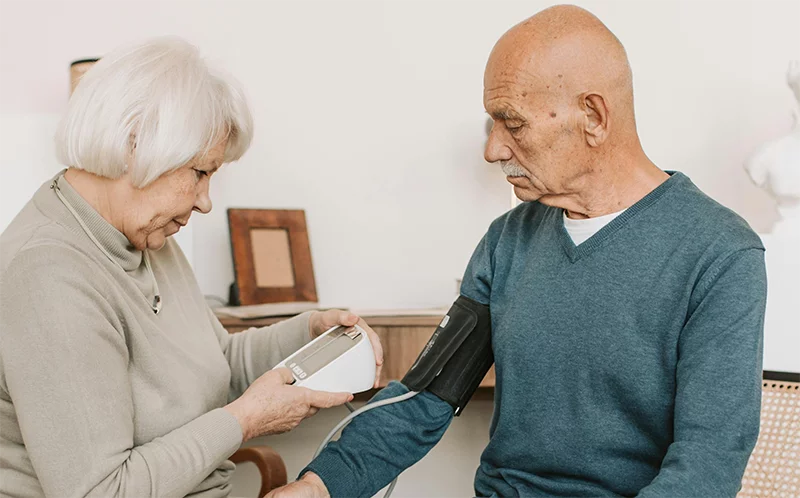
Particularly for those over forty who may already be at risk for heart disease, a rapid decrease in blood pressure can be frightening. Although variations are natural, a notable and unanticipated decline might cause vertigo, fainting, and sometimes lethal consequences. Protecting your cardiovascular health depends on knowing the basic reasons of low blood pressure (hypotension).
One of the most common causes is dehydration. Whether from too much sweating, vomiting, diarrhea, or poor water intake, your body loses more fluids than it takes in, which lowers blood volume and makes it more difficult for your heart to force blood across your arteries. Symptoms ranging from weakness to disorientation to lightheadedness might result from this. Particularly for individuals controlling high blood pressure with diuretics, which may further reduce fluid levels, proper hydration is essential.
In addition, some drugs might cause a rapid decline in blood pressure. Many people over 40 use medications for depression, heart disease, or high blood pressure, which sometimes results in excessively low blood pressure. Diuretics, beta-blockers, and certain antidepressants reduce the heart rate or relax blood vessels, which might cause vertigo or fainting upon rapid rising up. If you experience these symptoms, a medication adjustment may be necessary.
POTS, or Postural Orthostatic Tachycardia Syndrome, is the disorder wherein your heart rate increases too rapidly when you stand up, leading to symptoms like lightheadedness, dizziness, and even fainting. Your body’s inability to regulate heart rate and blood flow while altering posture causes the condition. Although POTS often results in a significant rise in heart rate, some individuals may also experience weakness or faintness should their blood pressure drop upon standing.
Heart conditions, particularly those that weaken the heart’s ability to pump effectively, can also be responsible. Low blood pressure episodes may be from a heart attack, arrhythmia, or heart valve dysfunction, all upsetting circulation. Should you have ongoing tiredness, dyspnea, or chest pain accompanied by a decline in blood pressure, you should seek emergency medical help.
Parkinson’s disease or autonomic neuropathy—often associated with diabetes—can affect the nervous system’s capacity to control blood pressure. The body could find it difficult to adapt to changes in posture, which would cause a hazardous disorder known as orthostatic hypotension, in which case blood pressure drops upon standing.
Finally, a quick decrease in blood pressure might point to an internal hemorrhage or a medical emergency, including a serious infection called sepsis. In these situations, symptoms include bewilderment, a rapid pulse, and clammy skin.
If you often get abrupt dips in blood pressure, don’t disregard it. Although it might seem like a minor inconvenience, it could indicate a more serious medical problem requiring treatment. See a cardiologist to find the source and guarantee that your heart stays strong and healthy for many years to come.


